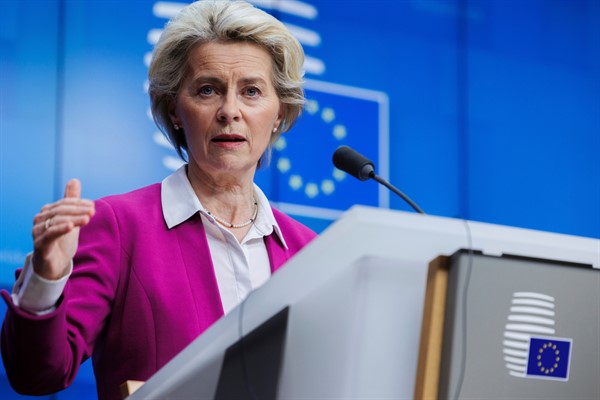European Union leaders agreed this week to a partial ban on Russian oil imports, overcoming a veto by Hungarian Prime Minister Viktor Orban. But the agreement commits only to banning seaborne imports to the EU by the end of 2022, leaving Russian oil imported by pipeline untouched.
Seaborne imports account for two-thirds of the oil the EU purchases from Russia, leaving one-third outside the ban’s scope. However, Germany and Poland announced at this week’s leaders’ summit in Brussels that they will not use the exemption, pledging to phase out both seaborne and pipeline imports by the end of this year. In practice, this means the EU will end all imports of oil coming from the northern branch of Russia’s Druzhba pipeline, but imports from the southern branch will continue flowing to Hungary, the Czech Republic and Slovakia.
EU leaders did not set a deadline for when the bloc must stop imports via the southern Druzhba, which represent 10 percent of Russian oil imported into the EU, deferring a final decision on these Russian oil imports for their next summit on June 23.

